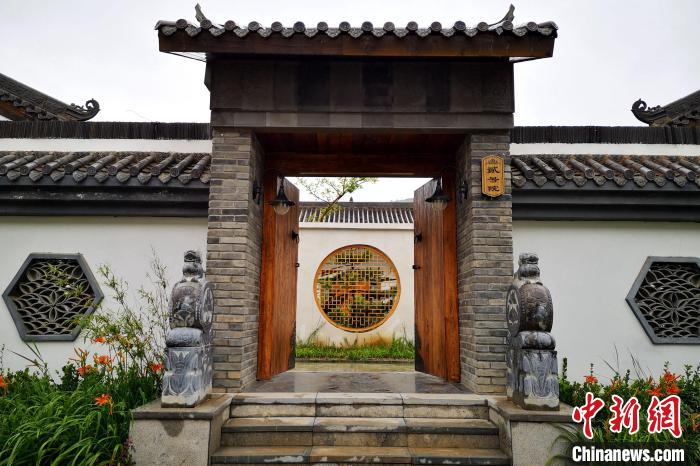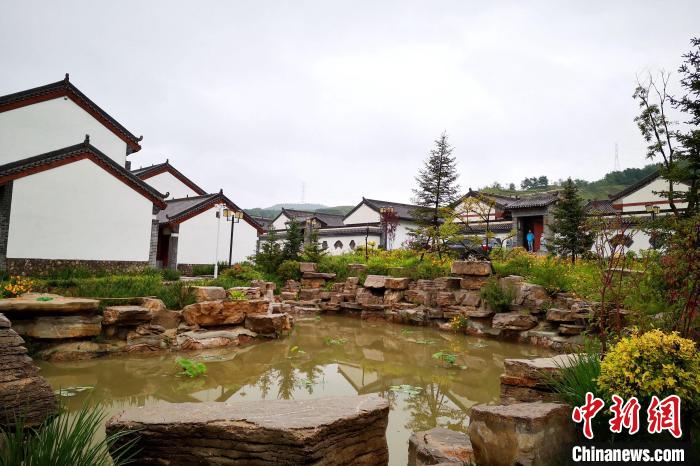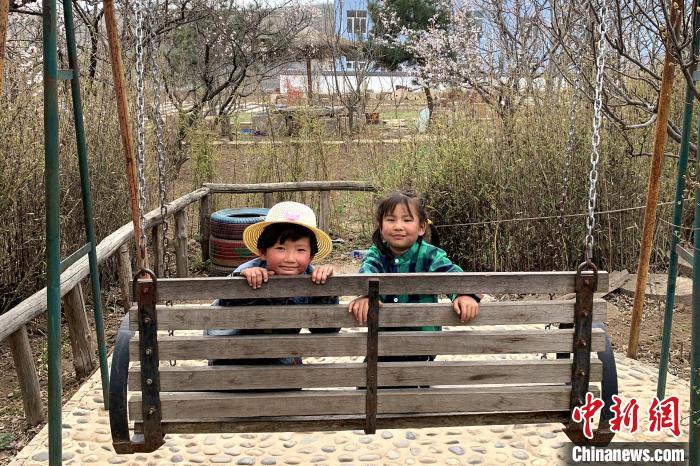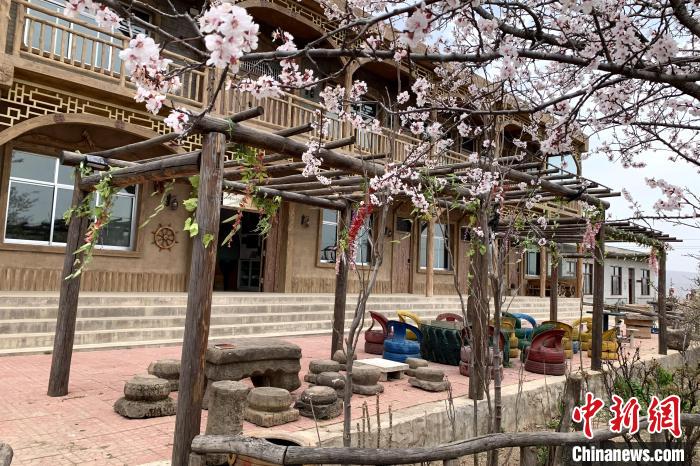China's rural revitalization uses aesthetics to transform countryside into lands of enchantment
In Jingyuan county, northwest China's Ningxia Hui autonomous region, vast wastelands and dilapidated houses have been transformed into ancient-style courtyards and dwellings, which buttress not only a local B&B business, but also beautify what has become an even more aesthetically pleasing rural landscape.

A homestay in Jingyuan [Photo/Li Peishan]
Chalky walls, grey tiles and flagstone lodgings at the site are luring visitors seeking a leisurely and more poetic lifestyle.
"The villages here are exquisitely original. The clean and tidy B&B rooms are a great escape from urban life," as a comment dropped by a visitor to the county conveyed on an online tourism service platform.
In the opinion of Ma Xiaoyong, an official with Jingyuan county's tourism authority, aesthetics should be valued when it comes to rural tourism, and that's exactly what the county is doing – enhancing the locality’s aesthetic appeal with the addition of fine art and creative elements in an effort to develop a holistic tourism experience.
"Jingyuan county has a forest coverage of 50 percent, the highest in the west," said Tang Xuzhao, general manager of a homestay in Jingyuan whose investor is a Wuhan-based company.

A homestay in Jingyuan [Photo/Li Peishan]
"By fusing ancient-style structures with modern interior decorations, we have erected brand new B&B rooms where tourists can come and enjoy a simpler lifestyle," Tang introduced.
According to him, tourists from southern provinces, such as Sichuan and Fujian, are a major source for guests visiting the homestay. Its revenue exceeded 2 million yuan ($310,921) in 2020 alone.
"The county plays host to over 180 agritainment facilities, half of which are run by young returnees who used to work in urban areas," said Ma. Besides, there are also four hotels and five B&Bs, he added.
While ensuring sound environmental protection, the young entrepreneurs are also working to employ aesthetic designs and treasured cultural elements, in this way avoiding the possibility of "urbanizing" rural areas while enhancing the nostalgic qualities of the countryside, Ma explained.

Two children play in a homestay in Jingyuan. [Photo/Li Peishan]
In today's Jingyuan, rundown courtyards have been turned into B&Bs after full-scale renovation and reconstruction; disused workshops have become specialty shops for exhibiting local products; while scrap tires were transformed into swings and seesaws for children’s amusement.
Last year, the county received 1.1 million visits, up from 650,000 in 2016, generating tourism revenues adding up to 900 million yuan. It was also named one of the “top 100 poetic and aesthetic counties of 2021” by Insight China magazine.

A homestay in Jingyuan [Photo/Li Peishan]
The application of aesthetics need not only be of assistance to Jingyuan county alone, but can also be adopted for use to energize rural revitalization in localities all over China.
Wang Shengze, deputy dean of the College of Fine Arts at Ningxia University, has witnessed the development of rural China as an artist who has conducted sketching tours while traveling to many rural areas around the country, including Jingyuan's Yejia village as well as Hongcun village in east China's Anhui province.
He believes aesthetic concepts should be closely integrated into rural development so as to inject renewed vigor into the countryside and revamp these areas into lands of enchantment.
























